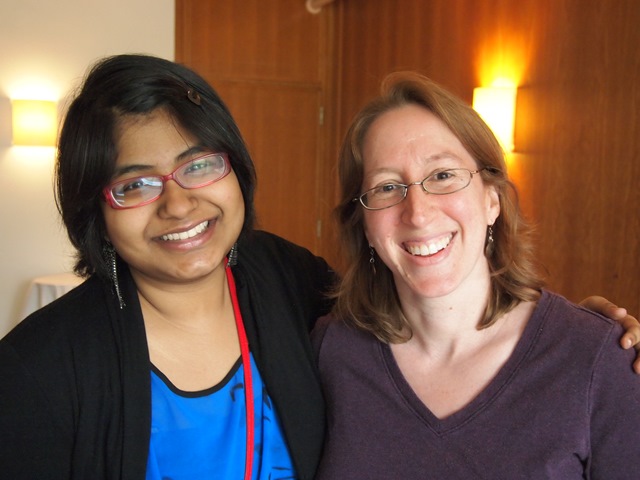This project is an in-depth qualitative investigation of teen/parent communication about sex and relationships, which provides an in-depth look at families participating in the evaluation of middle school education program. It includes interviews with 32 teen/parent pairs who are participants in the Get Real middle school sex education program.
Background
Having sex during early adolescence puts teens at risk for poor health and educational outcomes, such as unintended pregnancy, getting an STI (sexual transmitted infection), and dropping out of school. Evidence shows that communication between parents and their adolescent daughters and sons can make a difference, but parents often dread “the talk” and lack information and skills to talk about sex with their adolescent children. However, little is known about how to support family communication, particularly in minority and working class families, which are often left out of research studies.
Our study
This 35th anniversary research project investigates what works and what gets in the way of family communication about sexuality among diverse families. We also investigate the role of gender in parent/teen conversations about sex. We further hope to learn how sex education programs can help parents and teens move beyond dread of “the talk” toward ongoing, thoughtful conversations that can help reduce adolescent risk-taking behavior.
Study Design
We interviewed 32 teen-parent pairs for the current project, which was designed to complement an ongoing evaluation of a middle school sex education program conducted at WCW (Sumru Erkut, PI). The larger evaluation includes longitudinal survey data from 22 middle schools in the Boston area. This study provides in-depth investigation of parent/teen communication about sex and relationships from a sub-sample of 7th graders (and their families) who are part of the larger evaluation. We asked teens and parents about topics such as family conversations about sex and relationships, their reactions to these conversations and what makes it hard or easy to talk about these issues. We also asked about the roles of gender, race, religion and culture in these talks.
Sample
The average age in 7th grade of the 32 students (18 boys, 14 girls) was 12.88 years (SD=.53). On average, parents reported that they had received some college education, but did not complete a college degree. Thirty-eight percent were teen parents. Thirty-three percent of teen participants were Latino. Fifty-five percent of teen participants were Black, 31% White, and 14% biracial/multiracial. Nine percent of students reported they had sex by the start of 7th grade.
Preliminary findings
75% of teens reported talking with an adult in the family other than a parent about sex and relationships.
- “I had a girlfriend and she (grandmother) was like ‘You do?’ I was like ‘Yeah.’ And she was like, ‘What does a girlfriend mean?’ I scratched my head. She was like, “’If you don’t know what it means then you don’t need to have one.’”
- “I talked with my Mom and my Uncle about that (using protection), because my mom and my uncle have a different point of view.”
The most common reasons why students did not do assigned family homework assignments reason were:
- Personal reasons (55%) “I kind of felt embarrassed but it was like, I wanted to rush like hurry up so I didn’t have to talk about it.”
- Curriculum-based (24%) “I didn’t like the part where you had all the questions and you had to like write things down.”
- Family-based (21%) “At first, I don’t think she (my mom) knew what abstinence meant.”
Video:
Jenny Grossman, Ph.D., discusses the program in this video.
Next steps
- Explore the role of extended family in educating teens about sex and relationships.
- Investigate how parent sex education and experiences shape how they talk with their teens about sex.




